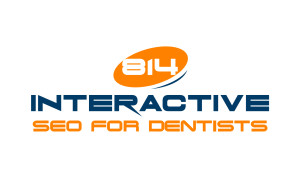Did you know that the first page of Google gets 91.5% of the traffic?
The second page is visited by only 4.8% of searchers, with the third page getting only about 1% of traffic.
That might sound very discouraging for websites who are on the second, third, and beyond pages, but there are ways to get your link to the first page of Google, quickly and effectively, allowing you access to the largest percentage of searchers.
Here are ten steps to help you get your dental SEO up to snuff and your link on the first page of the search results:
1. Invest in PPC.
If you do not yet have a pay-per-click campaign, now is the time to start one.
Many offices make the mistake of thinking that they only resources available for either SEO or PPC, not realizing that these campaigns work together and that pay-per-click is the fastest way to get onto the first page of search results, even for keywords that have plenty of competition and for which natural rankings will be very difficult to achieve.
2. Get to know your patient.
This is a fundamental of any type of advertising campaign, but it is especially important when it comes to researching and implementing keywords with the goal of getting on to the first page of Google.
The more specific and targeted your keywords are, the more likely they are to bring people to your website that would then become patients.
These more location and target patient-specific keywords will also have much less competition than more generalized keywords, making it much easier to get to the first page.
3. Use a keyword research tool.
Google actually provides you with a keyword tool that you can use if you need to research keywords, come up with new keywords, or look at their metrics.
This tool is free to use, but you might also find some utility in using a for-pay research tool or even in paying an expert to search for the most effective keywords for you and your office.
4. Pay attention to Google instant.
Google instant is the list of suggestions that pop up when you start typing a query into the search bar. How can this help you?
Google instant is a good metric of what people are searching in relation to the keyword that you are currently searching.
So, if you want to get an idea of what people are looking for in relation to dentist office’s in your area, type your area and then “dentist office” into Google and see what search suggestions show up.
This is a great source for long-tail keywords that are generally more targeted and easier to rank for.
5. Start boosting page authority with links.
The better your page’s authority, the better your page will rank.
Google wants only the most authoritative pages at the top of their search results.
You can start making your page authoritative by including links from your webpage to other, relevant, authoritative pages.
A good way to do this is by citing information.
If you use data from a study, link from your webpage to that study.
Links help you prove your relevancy and they also help you steal a little bit of the authority that those websites have.
6. Improve page authority with high quality content.
Do not underestimate the power of really great content.
Fantastic content should be the foundation of every dental SEO campaign, but too many people use content that is written with algorithms in mind, instead of with humans in mind.
The two things follow each other.
Writing content for humans means that it will automatically be great for search engines.
The better your content is, the more authority it will naturally have.
7. Invest in backlinks.
Backlinks are the unsung heroes of dental SEO.
Many offices will avoid using them, simply because they take time and effort to earn, especially if you are trying to earn them naturally.
A professional search engine optimizer can probably lift this burden from your shoulders if you really do not have the time to take care of this step yourself.
Whoever does it—building backlinks is important.
They can be done through guest blogging, through posting on forums, and posting on question websites like Quora or Yahoo Answers.
8. Market yourself on social media.
Social media and your ranking position are deeply connected.
If you do not have social media accounts for your office, you are missing the opportunity to market your content on those profiles, to drive people to your website via those profiles, and to get the ranking boost that comes along with being active on social media.
It’s also a good way to stay on top of what people are talking about and get feedback about what you should be talking about.
9. Include pictures on your website.
This should be pictures of your office, pictures of your staff, and even pictures of the procedures that you perform.
Pictures, especially when they are captioned and have appropriate alt tags, are a great way to drive more people to your website and to get Google to pay attention to you.
10. Ask for professional help.
If you are having trouble getting your webpages to rank and to drive the traffic that you need to your office’s website, it might be time to reach out to someone who can help you get a handle on your SEO campaign, build it up, and make sure that it is as solid as possible.




